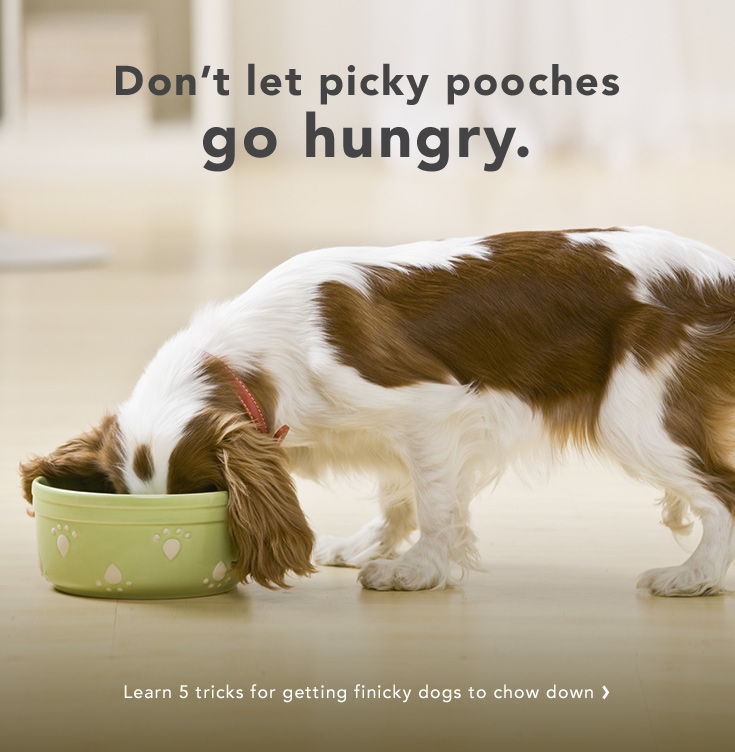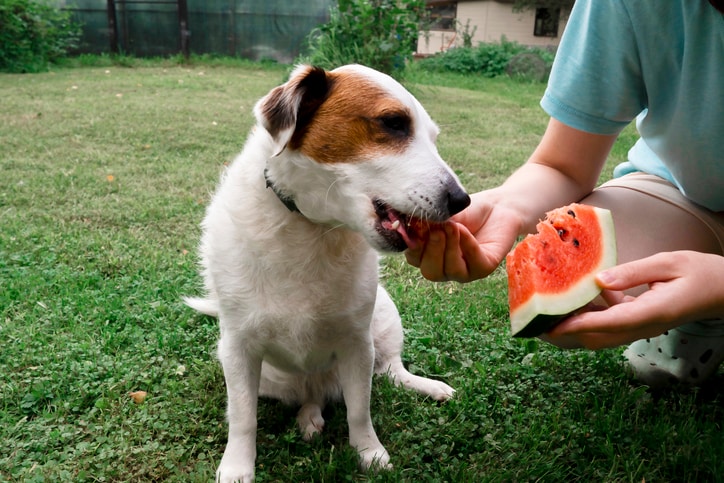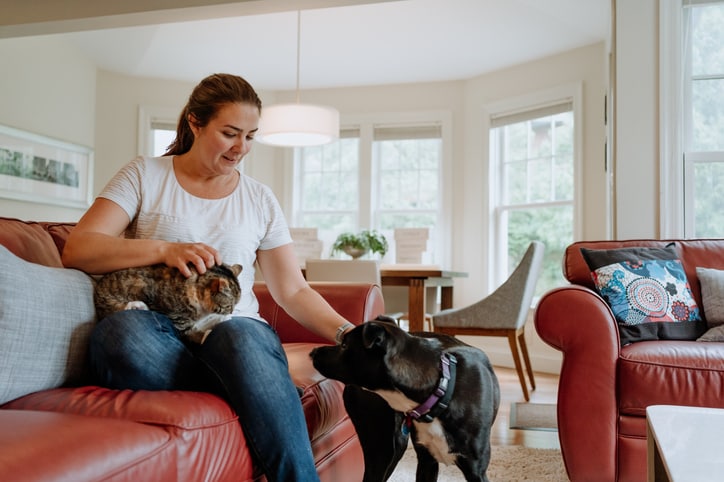It may be your most simpatico relationship, but despite you and your pooch’s uncanny ability to understand each other, there’s no comprehending why he’s gone off his food. It can be troubling and frustrating!
“‘My dog won’t eat and I don’t know what to do,’ is a really common complaint,” says Sean Casey, the owner of both Sean Casey Animal Rescue, a New York City nonprofit small animal shelter, and The Hamilton Dog House, a Brooklyn-based pet store. You’re not alone in wondering what, if anything, you should do different at chow time.
How do you know where to start? “There are many reasons why a dog might experience appetite loss, and it’s natural for people who love them to worry, but most of the reasons dogs stop eating are correctable and not indicative of anything serious,” says veterinarian Dr. Jill Elliott, a co-author of “Whole Health for Happy Dogs: A Natural Health Handbook for Dogs and Their Owners.”
If “my dog won’t eat” is your current mantra, these tips will come in handy:
Reasons Why Dogs Stop Eating
- Your Dog Might Be Sick
Monitor your dog for 24 to 48 hours to look for other symptoms and rule out illness first. When in doubt, always go to the vet, says Casey, whose animal rescue facility houses hundreds of homeless dogs annually.“If a dog doesn’t feel well, a full work-up, including blood and urine tests, will typically indicate the problem. If there’s no medical issue, it’s time to look for other reasons why the dog won’t eat,” adds Dr. Elliott.
- Your Dog Might Be too Hot to Eat
Summer heat can make dogs lethargic and diminish their appetite. A dog that’s cooped up all day in cold weather might experience the same issue if she’s left in an overheated, stuffy environment for extended periods of time. Cooling your dog’s surroundings and adding more fresh air and exercise to his routine may be all it takes to reinvigorate his appetite.
- You Might Have a Picky Pooch On Your Hands
Dogs can get bored with their food just like people do, and others are picky by nature Before you cart out the free-range sausages and filet mignon, try some food modifications, such as those below.
- You Might Have an Anxious Pup
Some dogs stop eating when their owners leave them for long stretches, be it for the workday or for a long weekend. Try being consistent with the dog sitter you use so your pup doesn’t feel lonely and abandoned when you aren’t home.

5 Tips for Getting Your Dog to Eat
- Modify Your Dog’s Food
Your dog may just need a change of food to stir up her appetite again. Try these modifications suggested by Dr. Elliott:
- Mix Things Up
Mix a food your dog likes, such as cooked chicken, hamburger, scrambled eggs or cottage cheese, into his food. Try a dog food topper, such doggy gravy, as a flavor boost
- Change the Type of Food
If you generally feed your dog wet food, switch to dry or vice versa. This can sometimes prompt a dog to eat again.
- Try Cat Food (yes, seriously!)
Believe it or not, adding cat food to dog food sometimes does the trick.
- Go Raw
“Raw food diets can be really effective for finicky eaters. It’s like table scraps without the nutrients cooked out and no seasonings or spices added that dogs don’t need,” says Casey.Dr. Elliott adds that these diets are not for every dog. “People have to be careful their dog is getting all the nutrients they need, like calcium.” He recommends buying a complete raw food product or use recipes like those found in The Good Food Cookbook for Dogs by Donna Twitchell Roberts.
- Make Sure the Food Hasn’t Gone Bad
You may have a hard time telling your dog’s dry food is going bad, but he doesn’t. Once opened, dry dog food starts to turn rancid in about a month unless kept airtight, and it can also acquire storage mites. Canned food goes bad within several days after opening, even in the fridge. Make sure what you offer your dog is fresh and appetizing!
- Check Food Temperature
Be sure to take note of food temperature. Lots of dogs love food straight from the can but won’t touch it served cold. Try letting food get to room temperature, or carefully heat it in hot water or the microwave first.
- Be Mindful of a Senior Dog’s Needs
Dogs over age 7 may have a diminished sense of smell, which affects their appetite. Try senior dog food formulas that are designed to appeal to older doggy noses.
- Give Plenty of Lovin’
Don’t forget to pour on the love, as well as the food! Praising your pooch for eating helps, too. After all, pleasing you is important to your dog!
Time for your pup to chow down – bon appetit!
For more dog health concerns, read Why Do Dogs Eat Poop?
Corey Kagan Whelan is a freelance writer living in New York. She shares her life with two kids and two rescue dogs, both of whom eat too many table scraps (the dogs, not the kids).


